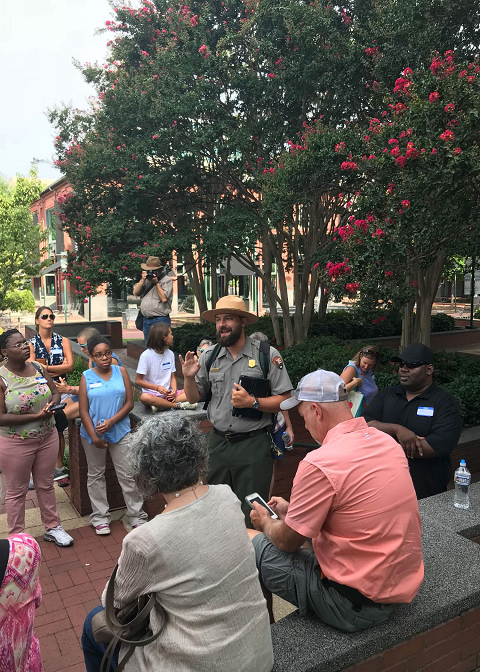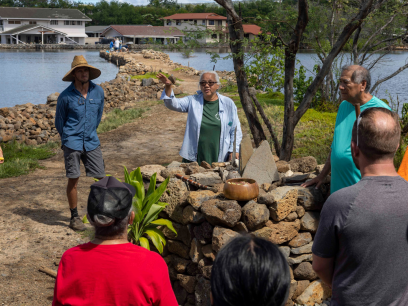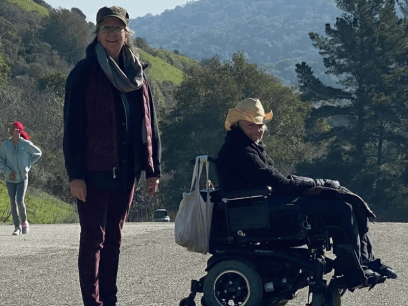
There is more to the Wiley United Methodist Church in Chattanooga, Tennessee, than meets the eye.
Thanks to funds from NEEF’s Centennial and Beyond grant, members of the community were able to peek behind the stained glass and red brick to discover that the site had been used as a hospital by the Confederate army during the 1863 Civil War battle of Chattanooga, and later as a military prison by the Union army. It was sold in 1867 for one thousand dollars to the African American Methodist Episcopalians, who established the first Black congregation in East Tennessee.
This was only one of the sites highlighted on the tour developed by the grant recipients, the National Park Partners (NPP). Their goal was to connect communities in Chattanooga with National Park sites and historic sites throughout the city, by creating an exhibit and walking tour that focused on African-American history.

After receiving the grant award, NPP’s first step was to host a community meeting at the Bessie Smith Cultural Center to discuss the stories and landmarks to include. As word spread about the project, other local organizations with relevant knowledge contributed their insights and stories.
With a wealth of information to choose from, NPP pieced together stories from the civil war and civil rights movement for the walking tour, including places like the Wiley United Methodist Church, Brown's Ferry Federal Road Trace, which was used for transporting slaves south, and Camp Contraband, where many African-Americans fleeing East Tennessee and North Georgia sought refuge.
Additionally, NPP decided to reconstruct the 13th Amendment exhibit at the Bessie Smith Cultural Center, as well as create exhibits for the 14th and 15th amendments, which were designed to ensure citizenship, civil rights, and voting rights for the emancipated slaves.
With the help of NEEF’s grant, NPP is connecting the community to National Park sites and helping them discover and celebrate the city’s rich African-American history.


